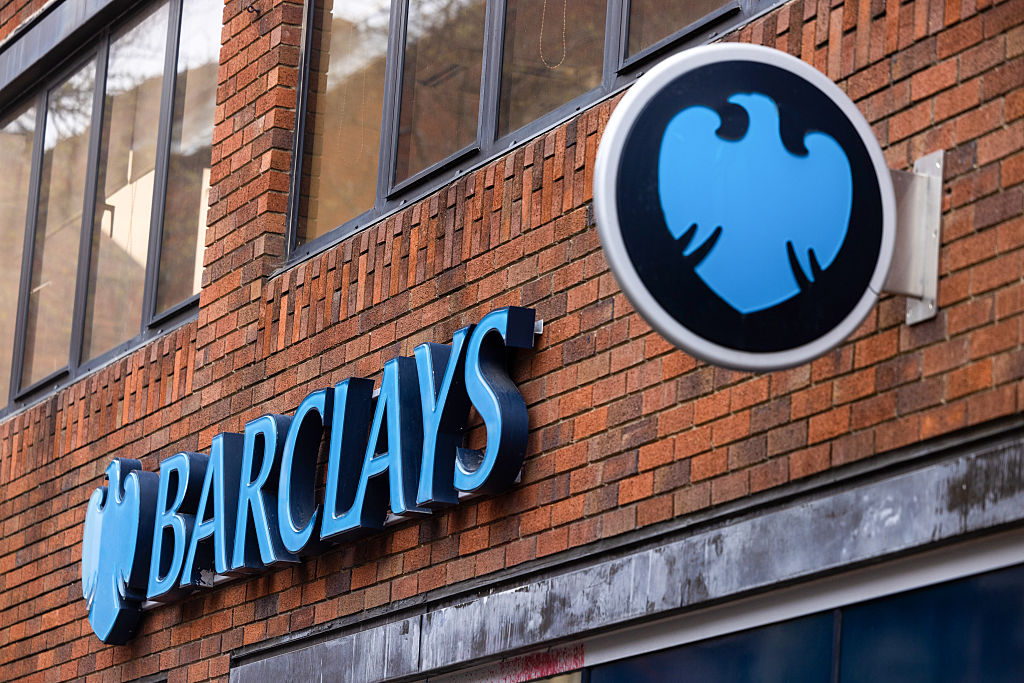Barclays bank caps in-branch cash deposits for personal banking customers
Barclays said the new cash deposit limit was part of a bid to clamp down on financial crimes, like money laundering. But will it affect you?


Get the latest financial news, insights and expert analysis from our award-winning MoneyWeek team, to help you understand what really matters when it comes to your finances.
You are now subscribed
Your newsletter sign-up was successful
Want to add more newsletters?
Barclays has brought in a limit that affects the amounts its in-branch customers can deposit in cash.
Aimed at cracking down on financial crime, the high street giant has imposed a new £20,000 limit for all personal accounts, including children’s savings accounts. This cap will refresh annually.
The move follows a warning from the bank earlier this year that is has seen a rise in investment scams. The news also comes as Barclays continues to reduce the size of its branch estate, with 57 sites set to close by 2025. It also recently acquired Tesco Bank in what is expected to be a £600m deal.
Try 6 free issues of MoneyWeek today
Get unparalleled financial insight, analysis and expert opinion you can profit from.

Sign up to Money Morning
Don't miss the latest investment and personal finances news, market analysis, plus money-saving tips with our free twice-daily newsletter
Don't miss the latest investment and personal finances news, market analysis, plus money-saving tips with our free twice-daily newsletter
What are Barclays’ new cash deposit rules?
Barclays’ new cash deposit limit means no one is able to pay more than £20,000 a year into their personal accounts using a bank branch. This rule includes children’s savings accounts and joint accounts, but does not apply to business accounts.
The cap came into force on 1 July 2024, and will refresh every year in January. It means the £20,000 cap initially applies for a six-month period (until January 2025).
The new rules apply to deposits handed in over the counter, or through a self-service device, with each cash deposit counting towards the annual total. If you have a joint account with one other person, it means you are now only able to physically put in a maximum of £10,000 each. Online transactions and cheque deposits are unaffected by the change.
It comes on top of a £10,000 cash deposit limit at Post Office branches offering Barclays' banking services. Any deposits made via these branches also count towards the Barclays limit.
Why has Barclays introduced a cash deposit limit?
Explaining the rationale for the changes when the cap was announced in April, a Barclays spokesperson said they would help the bank to ensure its in-branch services are not being used for nefarious activities. For example, the new rules theoretically make it harder for money laundering to take place.
The spokesperson said: “We take financial crime and our responsibility to prevent money laundering seriously. We have contacted customers to let them know that from July we are making some changes to the amount of cash customers can deposit into their Barclays accounts. We have set the limit at an amount that will allow us to better identify suspicious activity, while still ensuring our customers have access to cash.”
It comes after the Financial Conduct Authority (FCA) wrote to more than 1,000 financial services firms in March 2024 to remind them of their anti-money laundering responsibilities. The regulator said these companies, which included lenders, safe custody providers, brokers and financial leasing companies, were “still not getting the basics right” when it came to looking out for financial crimes.
Regulators and big-name banks have become much more alert to financial crimes, like money laundering, in recent years after several high-profile cases involving household names. In 2018, Danske Bank was caught out for funnelling ill-gotten gains through a branch in Estonia.
And in 2022, Credit Suisse was found to have laundered money for a Bulgarian drugs ring. This, and several other scandals, contributed to the Swiss giant’s collapse in 2023 following a wobble in market confidence in the global banking system.
Do other banks have cash deposit limits?
With its new cash deposit limit, Barclays has become one of the few major banks to have an in-branch cap. Here are the personal deposit rules at some of the other high street groups and brands:
- HSBC: no in-branch limit, although customers going via a Post Office can only deposit up to £3,000 a day, and £20,000 a year.
- Lloyds: no in-branch limit, however people can only deposit up to £5,000 a day at mobile branches. In Post Offices, there is a monthly £2,955 limit, and an annual maximum of £20,000, if you have your debit card with you. Without it, you can only deposit £1,000 in one go.
- Nationwide: no over-the-counter limit, but you cannot deposit more than £2,500 into an in-branch machine per day.
- NatWest: there is no over-the-counter limit. You cannot deposit more than £3,000 a day, or £24,000 over a rolling 12-month period, at a Post Office or via any deposit machine.
- Santander: a maximum of £20,000 can be deposited per day. At a Post Office, the limit is £10,000. There is an annual rolling limit of £240,000.
- TSB: no in-branch limit, but there are daily deposit limits of £1,500 and £10,000 per year in Post Office branches.
Get the latest financial news, insights and expert analysis from our award-winning MoneyWeek team, to help you understand what really matters when it comes to your finances.
-
 ‘Why you should mix bitcoin and gold’
‘Why you should mix bitcoin and gold’Opinion Bitcoin and gold are both monetary assets and tend to move in opposite directions. Here's why you should hold both
-
 Invest in the beauty industry as it takes on a new look
Invest in the beauty industry as it takes on a new lookThe beauty industry is proving resilient in troubled times, helped by its ability to shape new trends, says Maryam Cockar
-
 Nationwide promises to protect all its branches from closures until at least 2030
Nationwide promises to protect all its branches from closures until at least 2030The building society has extended its pledge to keep all high street Nationwide and Virgin Money branches open, now until at least 2030.
-
 Barclays bank switch: how to get £400 'free' cash by moving accounts
Barclays bank switch: how to get £400 'free' cash by moving accountsBarclays has unveiled a £400 current account switching offer, running alongside its £500 ISA transfer deal. Which accounts are on offer, and are you eligible?
-
 Green mortgages: how do they work and how much can you save?
Green mortgages: how do they work and how much can you save?Most high-street lenders now offer some kind of green mortgage deal. We look at who’s eligible, how to apply and the mortgage rates and cashback on offer
-
 Thousands of Brits switch to Nationwide, Monzo and NatWest – which banks are least popular?
Thousands of Brits switch to Nationwide, Monzo and NatWest – which banks are least popular?We look at the most and least popular banks and building societies as current account bank switches reach a record high. Is it worth moving your money?
-
 Barclays to pay millions in compensation after IT outage chaos
Barclays to pay millions in compensation after IT outage chaosBarclays intends to compensate customers after an IT outage caused payment problems for three days
-
 Barclays reports large spike in romance scams - here's how to avoid them
Barclays reports large spike in romance scams - here's how to avoid themThe UK bank found a 139% increase in the total value of romance scams
-
 Nationwide, HSBC, Barclays and Virgin Money customers hit by payment issues
Nationwide, HSBC, Barclays and Virgin Money customers hit by payment issuesThe problems have been compounded as Friday is the last day of the month when many people are paid by their employer
-
 Best and worst UK banks revealed
Best and worst UK banks revealedWe reveal the best UK banks – and the worst – when it comes to managing your money and good customer service. How does your provider compare?
